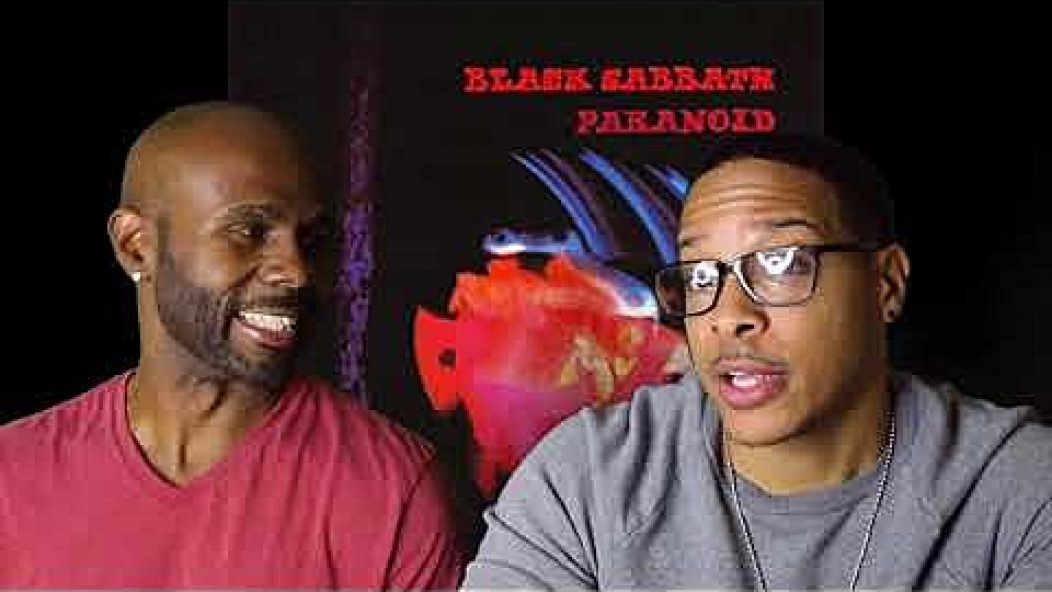
Lost In Vegas Open Their Mind To Metal
…
Though I love to share music with people, I dread actually showing them new music in person. Sitting someone down and forcing a pair of headphones on their head may seem like a good idea if you’re Natalie Portman, but usually it’s a recipe for disaster. Nothing makes you question your taste like stony silence in response to a favorite song. On the other side of the coin, few things are as invigorating as watching someone’s mind get blown in real time. Seeing them experience something you hold dear for the first time allows you to relive your own discovery, and in turn deepens your connection with the new fan.
This particular thrill has made the YouTube channel Lost In Vegas appointment viewing over the last few months. The channel follows a simple and well-worn formula: the show’s two hosts, George and Ryan, play a song that they are unfamiliar with, and react to it in real time, occasionally pausing to expand on their thoughts. This is hardly a new concept: I remember first seeing reaction videos to music back in 2011, and by 2017, it’s become a widespread genre on YouTube, documenting how everyone from teens to grandparents react to all manner of media.
Lost In Vegas differ from the majority of the field in two respects. First, the duo format allows for the two to bounce ideas off of each other, disagree, and feed off of each other’s energy. Whereas a lot of reaction videos feel uncomfortably performative, George and Ryan have a relaxed chemistry with each other first and foremost. Second, unlike most reactors, the two presenters take time to actually analyze the music they’re listening to instead of relying on their gut reactions. This results in a thoughtful discussion that, despite lacking in technical terminology (neither George or Ryan are musicians), displays a sharp ear and deep appreciation for music.
They also happen to be great metal critics.
…
…
Though the majority of Lost In Vegas’s videos are reactions to hip-hop and R&B, the group have slowly been expanding their coverage into heavy metal since August 2017, when they covered Avenged Sevenfold’s “Afterlife.” Following the encouragement of their viewers, and some helpful advice from the heavy metal community, Ryan and George began working their way through the genre’s foundational figures, covering Metallica, Slayer, Megadeth, Anthrax, Black Sabbath, and Iron Maiden in quick succession.
While the channel’s early flirtations with metal were entertaining, it’s these later videos that really make Lost In Vegas’s metal criticism special. George and Ryan get metal. This isn’t surprising: their other music criticism is just as smart, but it is gratifying. Their lack of context for heavy metal’s biggest names forces them deal with the music for what it is, not for the reputation it holds. It’s hard to imagine many metal critics (outside of maybe our former editor Joseph Schafer) being so openly underwhelmed with Slayer’s “Raining Blood,” but their dismissal of it is valid and in-line with the rest of their taste.
…
…
The real joy comes from watching them experience the thrill of falling in love with metal in real time. Watching two self-described “free thinkers” approach a song like “Master of Puppets” with total openness is like hearing the song anew. By their own admission, as hip-hop fans first and foremost, they approach new music looking for a groove. However, it doesn’t seem like they are too limited in what type of groove they are looking for. The endless double bass of “Painkiller,” the syncopated half time of Gojira, and the choppy thrash of Metallica are all equally valid, so long as the songs make sense.
George and Ryan are equally as holistic when it comes to their lyrical analysis. This is another area where their approach feels fresh. It would be very easy for them to critique the simplistic rhyme schemes or clumsy language of the metal songs they listen to (Sabbath rhyming “masses” with “masses” passes without comment). Instead, they take the material at face value, remarking on turns of phrase that they find notable, but mostly focusing on what the songs mean. It’s remarkably uncynical. They take the material seriously and map out how the music helps support the themes of the lyrics with real rigor. When breaking down Iron Maiden’s “Hallowed Be Thy Name,” they expertly track how the changes in the music match the song’s protagonist slowing coming to terms with his imminent death.
…
…
Beyond their insightful analysis, what makes Lost In Vegas’s metal reviews so infectious is the experience of watching two friends discover metal, finding their own likes (Gojira) and dislikes (Meshuggah) along the way. A great deal of the metal mindset, if such a thing can be quantified, involves the belief that the outside world cannot, or will not, ever truly understand metal. Metal culture accepts itself as a closed-off circle, but it is part of a larger musical discussion, one that anyone can join by putting aside their biases and approaching with an open mind.
…










